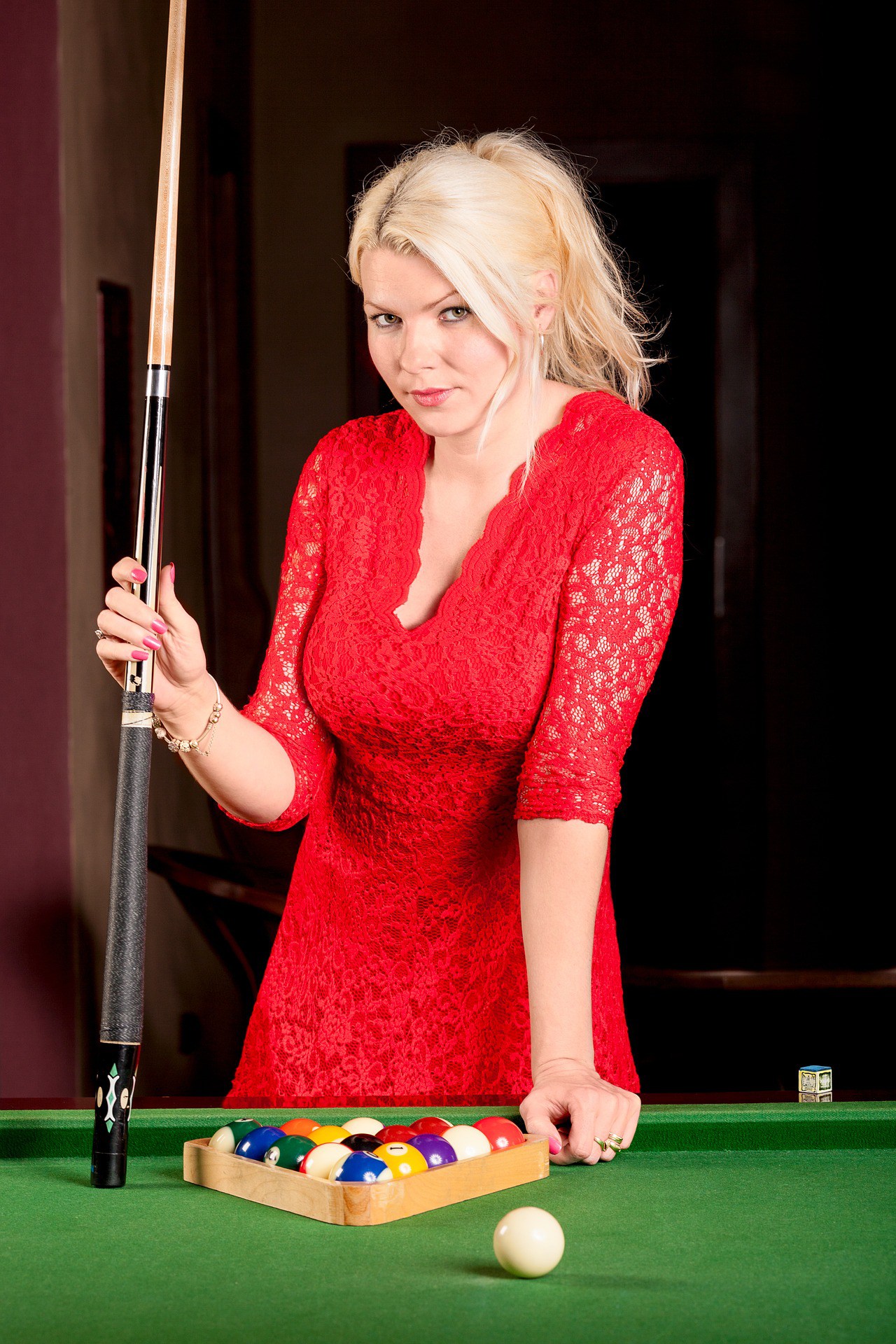Here’s what happened.
Years ago I played pool, and I got pretty good. I’d spend hours practicing. My father was a player during his military years and I wanted to impress him. Without him knowing, I’d started learning to shoot when I was 12-years-old from a guy named Rocky. He was partially blind and owned a game room near our house. From a seat not far from the table, he’d instruct me how to hold the stick, line up my shot, and eventually get the balls into the pockets. Once in a while when I wasn’t quite “getting it,” he’d tell my partner, Jimmy, to step aside so he could show me what to do.
Lesson: Pool is a technical game. There’s little luck involved once you get to a certain level.
During college stronger players taught me how to execute proper English on the ball, so it’d end up where I wanted it. Weaker players taught me patience. Stronger players kept me humble while they played against me with their non-dominant hand. Weaker players helped me become a better teacher. Learning was fun. And I was all about “the learning.” I wanted to get better.
One Saturday afternoon my father visited me on campus. My dorm had the best game room and I suggested we play pool. I don’t remember how many games we played, but by the time we’d finished, I’d beaten him at least once. This was my freshman year and I was eighteen.
When I was in my early twenties, playing in bars on quarter tables, I took great pleasure in beating other players. They were usually guys who believed a woman couldn’t beat them. Their frustration after I’d take over the table always left me feeling satisfied. They were deflated.
My father, realizing that I was serious about shooting, asked if I wanted to use his pool cue. I explained that I didn’t want those guys seeing me coming. The element of surprise was always on my side when I approached a table. I liked it that way.
Lesson: To win, you have to think like a dolphin, but attack like a shark.
So why didn’t I take my game to the next level? Why didn’t I go where the money and prestige was? Why didn’t I play in tournaments?
What if I wasn’t good enough? Could I handle a real loss? What if I got knocked out in the first round? That would be embarrassing. Rather than step up to a real challenge, I settled on playing in bars and clubs where the competition wasn’t all that tough, and the stakes never too high.
Lesson: The stakes always are high. Sometimes you just don’t realize it.
Competition has never been my strength. I’d rather help people succeed than compete against them (Unless they happen to be a 20-something male who thinks I can’t play pool. Something about that got under my skin and motivated me to want to beat them. It was as though they gave me a reason to be competitive when all I wanted to do was have fun. Once a guy bet me $15 on a single shot. He still hasn’t paid me.)
Being a pool player is about competition. In the end, someone has to lose. When I lost to a good player, it never bothered me, but when I lost to a mediocre player, I knew I was losing to myself. They weren’t more skilled. I simply didn’t bring my “A” game.
Lesson: Mediocre players get lucky. Skilled players just screw up.
I stopped shooting pool in my late twenties. Bar tables are horrible. Besides, I was getting too old for that scene and it bored me. But that hasn’t stopped me from eyeing a table now, and again. The itch still is there.
A few years ago I watched a woman playing in a local bar. She was awesome! When I struck up a conversation she asked why I wasn’t playing (My husband doesn’t play so I didn’t have a partner.) The truth was that I hadn’t played in years and didn’t feel like getting schooled. I can see every shot on the table, but that doesn’t mean I can execute them.
Lesson: A long hiatus usually degrades your skills. This is true in all things.
What do the researchers say?
Competition is helpful. Why? According to researcher, Sander van der Linden Ph.D, it temporarily boosts us to perform. It can be used to increase prosocial behaviors (not littering, using less energy, volunteerism) as well as more personal behaviors (exercise, quit smoking, lose weight). Competition is a zero-sum game, of course. Someone has to lose. But this isn’t necessarily a bad thing. Learning to lose can help build resilience.
You’ve probably heard a lot about resilience, aka, grit lately. Researcher Angela Duckworth’s Ted Talk now has more than eleven million views. She defines grit as “perseverance and passion for long-term goals.” Keep this definition in mind.
The difference between continuing to perform or not, comes down to intrinsic vs. extrinsic motivation. Intrinsic motivation basically means we’re doing something because we want to. Our reward is internal satisfaction. Extrinsic motivation means we’re doing something because of an external reward (money is a big one, but recognition also works) we might receive. In one of van der Linden’s studies students competed to reduce energy consumption. When the competition ended, energy consumption returned to normal levels.
My motivation to win while playing a guy who thought I wasn’t good enough primarily came from an extrinsic motivator. The “high” I got from beating that type of player was temporary, and didn’t continue when playing another guy, unless he also exhibited the same bias toward female players. But when I played more experienced shooters — the ones who were teaching me, I was intrinsically motivated to improve my game. Why else would I spend so much time practicing alone? Some could argue that I was extrinsically motivated by wanting to eventually beat my father. That’s possible, but I continued playing long after that happened.
But what about cooperation? Isn’t that important, too? You bet! In fact, it’s arguably more critical. Cooperation is a building block for the entire human species. And it’s contagious! We can’t survive without working together. It kept, and still keeps, us safe. Think about what it would have been like to hunt for food and care for offspring without the support of a larger group. Actually, think about what it would be like for you to manage all aspects of your life now without social supports. Social support is about cooperating with others for the greater good of all involved. Check out Social: Why our brains are wired to connect by Matthew Leiberman, Ph.D. His wife, Naomi Eisenberger, Ph.D, discovered that we feel social pain in the same way that we feel physical pain.
This is important because when we aren’t cooperating, cooperators will punish non-cooperators by socially isolating them. I’ve seen this on play grounds, in boardrooms, and in personal relationships. At the end of the day, we all want to get along. (At least within our own groups, but that’s a discussion for another time.)
Still not convinced?
Here are more resources so that you can learn to build resilience.
Here’s a useful resource for increasing cooperative behavior in children (it’s also helpful to remember when working with adults!)
If you found this information helpful, please share it with your family and friends. And, if you have questions or a comment, reach out to me @koridmiller.
Originally published at wp.me


